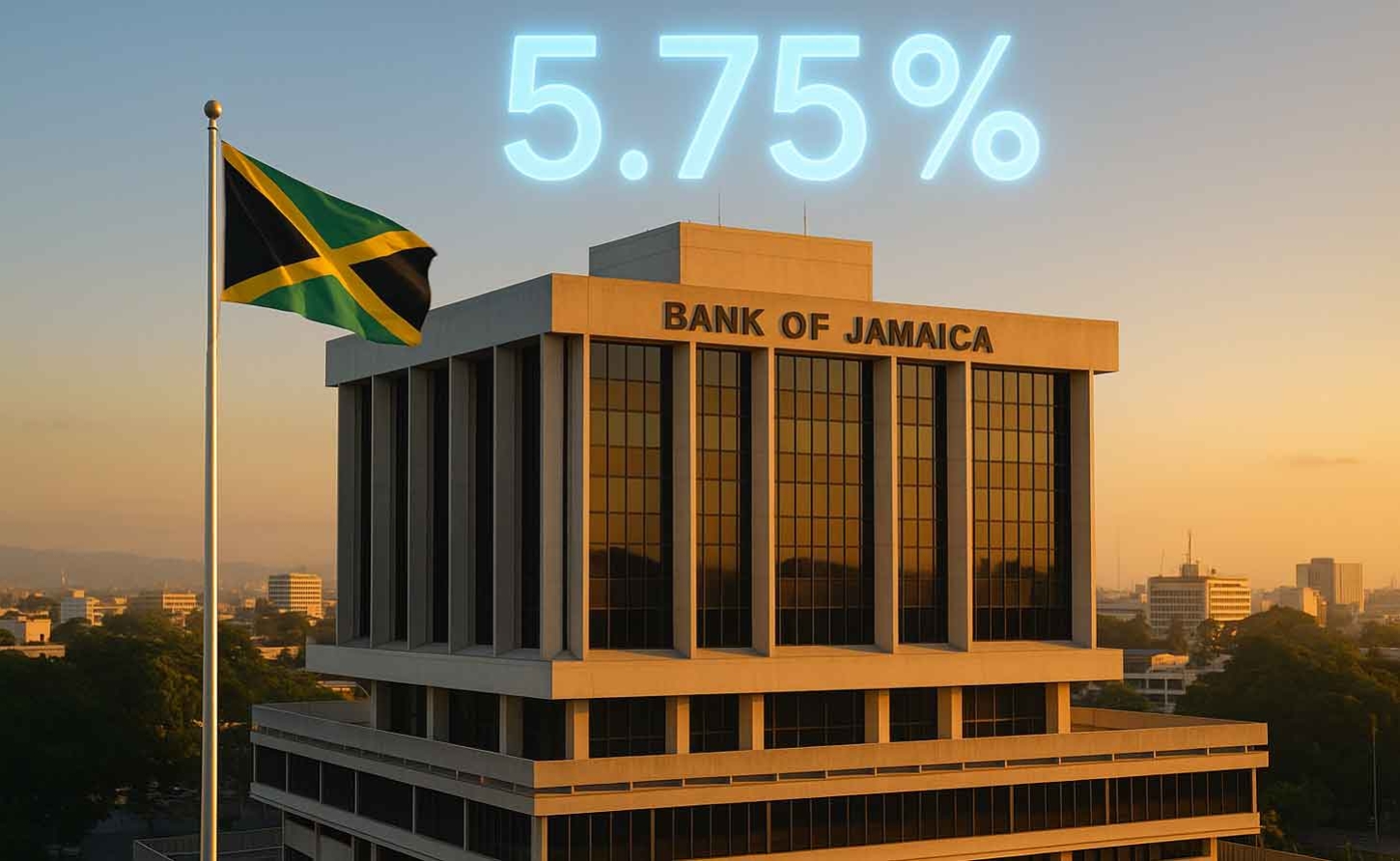JAMAICA | Bank of Jamaica Keeps Interest Rates Steady at 5.75% Amid Global Uncertainty

KINGSTON, Jamaica, July 1, 2025 - The Bank of Jamaica's top policymakers have decided to keep the country's key interest rate unchanged at 5.75% per annum, betting that their current strategy remains the right prescription for keeping Jamaica's economy stable in an increasingly turbulent world.
During meetings on June 25 and 26, the Bank of Jamaica's Monetary Policy Committee—the group of economic experts who set interest rates—unanimously agreed to maintain their wait-and-see approach. The decision comes as the central bank navigates choppy waters created by global trade policy uncertainty and recent geopolitical developments that have shifted inflation risks to the upside.
For ordinary Jamaicans, this means borrowing costs for things like home mortgages and business loans should remain relatively stable for now, while the central bank continues working to keep the dollar steady and prices predictable.
A Careful Balancing Act
The bank's cautious stance reflects a delicate balancing act. While Jamaica's inflation—the rate at which prices rise for everyday goods and services—has remained comfortably within the bank's target range of 4% to 6% since September 2024, storm clouds are gathering on the horizon.
Annual headline inflation at May 2025, as reported by the Statistical Institute of Jamaica (STATIN), was 5.2 per cent, in line with the outturn at May 2024. Even more encouraging, core inflation—which strips out volatile food and fuel prices to give a clearer picture of underlying price trends—stood at 4.6% in May, well below the upper limit of the target range.
These numbers tell a story of remarkable stability in a world where many countries are still wrestling with stubborn inflation. But the Bank of Jamaica's officials aren't popping champagne corks just yet.
Global Headwinds and Silver Linings
The central bank's measured optimism comes with important caveats. Global commodity prices are expected to tumble 12% in 2025, and an additional 5% in 2026, falling to levels not seen since 2020, which should help keep a lid on inflation. Energy prices are expected to decrease by 17% this year to the lowest level in five years, providing further relief.
However, geopolitical tensions remain a wild card. The confluence of trade tensions, conflicts, geopolitical risks, and frequent weather-related shocks makes it more likely that commodity markets will remain volatile. As the Bank of Jamaica noted, prolonged or intensified geopolitical tensions could still push up international commodity prices, potentially spilling over into higher costs for Jamaican consumers.
The bank's economists are particularly watchful of what they call "second-round effects"—the ripple impacts that global trade policy changes could have on Jamaica's economy beyond the immediate effects.
A Success Story Nine Months in the Making
The current policy rate represents a notable achievement for Jamaica's monetary authorities. The Committee will continue to carefully monitor domestic inflation expectations and any upward pressure on prices caused by the evolving tariff landscape, reflecting lessons learned from previous global economic disruptions.
What makes this moment particularly significant is the context: while the US Federal Reserve maintained its interest rate target in the range of 4.25 to 4.50 per cent in June 2025 amid their own economic uncertainties, Jamaica has managed to maintain inflation stability even as it cut rates from higher levels earlier in the year.
This stability hasn't happened by accident. The bank's inflation targeting framework, which aims to keep price increases between 4% and 6% annually, has provided an anchor for expectations. When businesses and consumers believe inflation will remain low and stable, they're less likely to make decisions that actually push prices higher—creating a virtuous cycle.
The Road Ahead
Looking forward, the Bank of Jamaica's message is clear: steady as she goes, but with eyes wide open. The Monetary Policy Committee "reaffirms its commitment to maintaining low and stable inflation and will deploy the tools necessary to preserve stability," signaling they're ready to act if circumstances change.
The bank's next policy announcement is scheduled for August 20, when policymakers will again assess whether their current approach remains appropriate. Given the fast-moving nature of global economic developments, that meeting could prove pivotal.
For now, Jamaicans can take comfort in knowing their central bank has successfully navigated a complex global environment while keeping the fundamentals of the economy on solid ground. But in a world where economic conditions can shift rapidly, vigilance remains the watchword.
The full details of the committee's discussions are available on the Bank of Jamaica's website, https://boj.org.jm/core-functions/monetary-policy/policy-schedule/summary-of-decisions/ , providing transparency into the decision-making process that affects every Jamaican's economic well-being.
-30-
